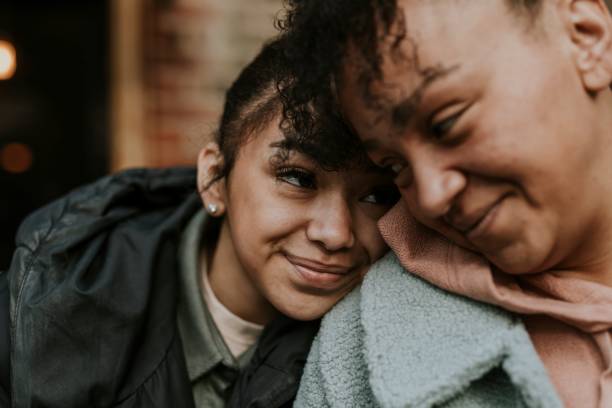Related Articles
It is not healthy for children when the government or schools put distance between kids and their parents. Bills in the Legislature right now would, however. Prior state law also does. And practices in the state, including the “mature minor doctrine” and decisions made by students in public schools, often with guidance they get at school, do. (Important note: The state does and should intervene in the parent-child relationship in cases of abuse.)
Nearly 450,000 Washingtonians signed onto Initiative 2081, otherwise known as the parents’ rights initiative. Lawmakers adopted 2081 in March 2024, instead of making the initiative go to a vote of the people. It passed in the Senate unanimously. It also had the support of 82 lawmakers in the 98-member House of Representatives.
Legislators from both parties talked about how the initiative represented common sense, with some saying it was duplicative, unnecessary and just a feel-good law. I admit, it did feel good that a parent was being given the right to know things that schools knew when it came to the health and well-being of their child.
The common-sense initiative involving students, parents and schools said that parents had a right to opt kids out of often-controversial surveys or instruction on topics related to sexual activity. That was already mostly true, based on my personal experience — even though some teacher-chosen educational materials are not provided to parents seeking a review, nor are they even known about sometimes at the district level. I worried the initiative offered some false security to parents because of my experience.
I-2081 also outlined that if a crime has been committed against, or by, their child, a school district must give a parent “immediate notification.” Makes sense, right? Well, only some lawmakers agree.
Perhaps most importantly for our times, the initiative said parents were to receive notification when medical services are offered to their child or when kids are taken off campus, except in cases of emergencies. This part has to be amusing to more parents of school-age children than just me. My kids have not been able to take aspirin without my OK. For years, I also received calls or notices from their public schools whenever they were absent from a class. The initiative did not require parental permission for student medical choices. Notification was the limit.
Requiring permission would never fly in Washington state where many lawmakers believe minors should be able to choose things as life-changing as abortions or gender-transition services without the guidance of parents. I-2081 doesn’t change the fact that people of any age in Washington state can choose to have an abortion without consent from a parent, guardian, or partner. And state law and the state’s “mature minor doctrine” enable transition choices for children 13 or older. (I’ll get back to that 1967 judicial precedent in a minute.)
The decades-long practice and belief that kids can make their own medical decisions without parent knowledge is the main reason the initiative faced a constitutional legal challenge — that it survived, by the way — and it is one of the reasons Democratic lawmakers are saying they need to do a clean-up on Aisle 2081.
Enter House Bill 1296, prime-sponsored by Monica Stonier, D-Vancouver, with 23 co-sponsors, and Senate Bill 5181, sponsored by Sen. Claire Wilson, D-Federal Way, and nine of her colleagues. These lawmakers argue the bills would clean up a messy initiative outlining parent-school interaction and information, not take parents’ rights away — even though they would.
Eliminated rights
The bill report for HB 1296 itself says, “Makes changes to delineated rights of parents and legal guardians of public school children.” Later the bill report lists parents’ rights that are eliminated.
Those eliminated rights include receiving “prior notification when medical services are being offered to their child” and “notification when the school has arranged directly or indirectly for medical treatment that results in follow-up care beyond normal school hours.” The Senate bill report also says that it “removes rights related to notification requirements regarding medical services and treatment.”
Both bills have proposed changes to time requirements for notification of a criminal incident involving a child — from “immediate” to “48 hours.”
Regarding the time element, Rep. Monica Jurado Stonier defended “48 hours” in her yet-to-pass House bill as a way to give school officials and law enforcement time to get the facts clear so that accurate information is provided to parents or guardians. It looks like SB 5181, which was supported 30-19 in a Feb. 5 vote in the Senate, went back to honoring the “immediate” notification requirement for crimes involving students that the initiative proposed.
While the initiative gave parents access to “medical or health records” and “records of any mental health counseling,” these bills give parents access to “education records” — a term not used in the initiative. “That’s defined as records directly related to a student, including identifying data, attendance, evaluative tests, disciplinary status and test protocols,” writes the Washington State Standard, adding, “Medical and mental health records are not included in the definition in the new bill, though the legislation says that parents still have access to those records under other state laws.”
These bills are about way more than cleaning up a law. Representatives and senators supportive of HB 1296 and SB 5181 want to change the initiative-now-law and ensure that the health care decisions a student wants to keep private are kept private, even if educators know about them or help facilitate them.
Mature minor doctrine
No discussion about minors making medical decisions without parent guidance would be complete without discussing the state’s “mature minor doctrine.” Read more about that here, but know that the judicial precedent originates from Smith v. Seibly in 1967: The Washington Supreme Court decided that minors, under certain circumstances, could consent to medical treatment based on their maturity level.
State law then cemented minors’ ability to separate themselves from parent guidance in health matters in this state at age 13. I like a bill that is not moving in the Legislature to increase the age of consent for medical choices from 13 to 17. That bill is HB 1176, proposed by Republican lawmakers.
More families leaving public schools?
This might be one of the legislative session’s most controversial bills, in a session with many controversial bills. Those of us who see that a lot of common ground exists between liberal and conservative policies are deeply discouraged. Lawmakers point to the changes these bills would make to I-2081 as another reason to expect a decline in public school enrollment. I agree with Sen. Paul Harris, R-Vancouver, who said ahead of the vote on SB 5181, “I really believe this will take a step backwards.”
It will be interesting to see how many people show up from noon to 2 p.m. Saturday, Feb. 15, for a rally at the Capitol organized by those who want to defend I-2081. I assume people on both sides of this child health issue will show up and debate as fervently as lawmakers have.






